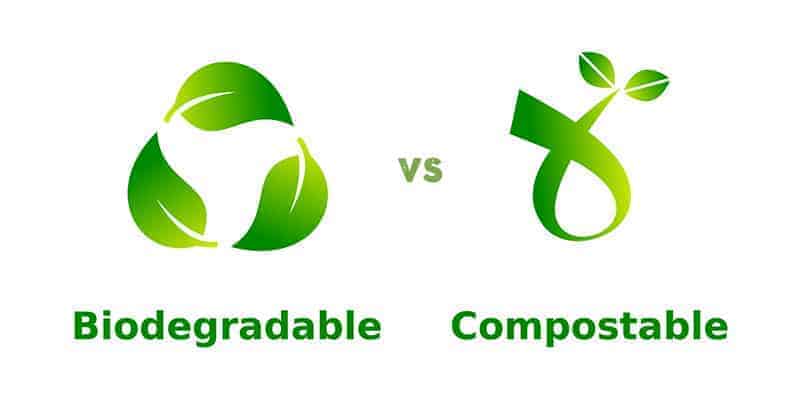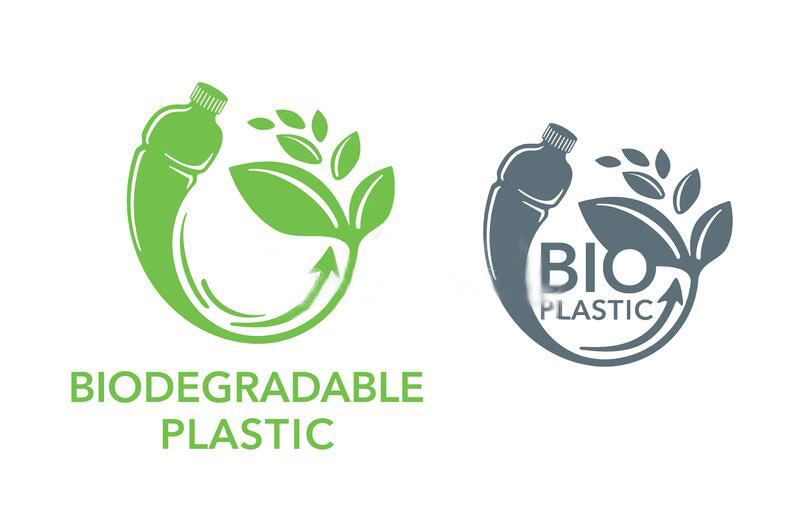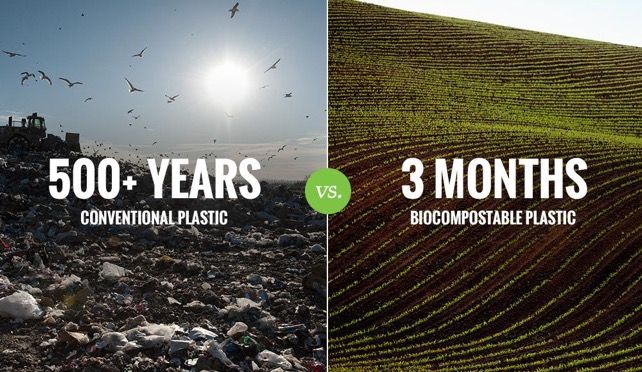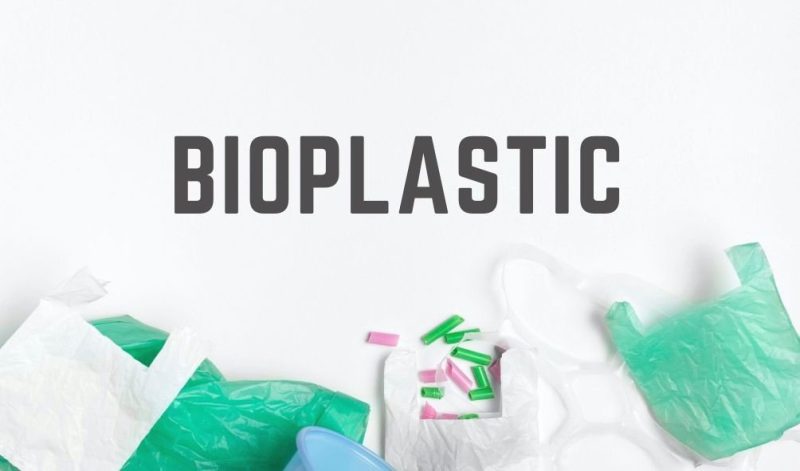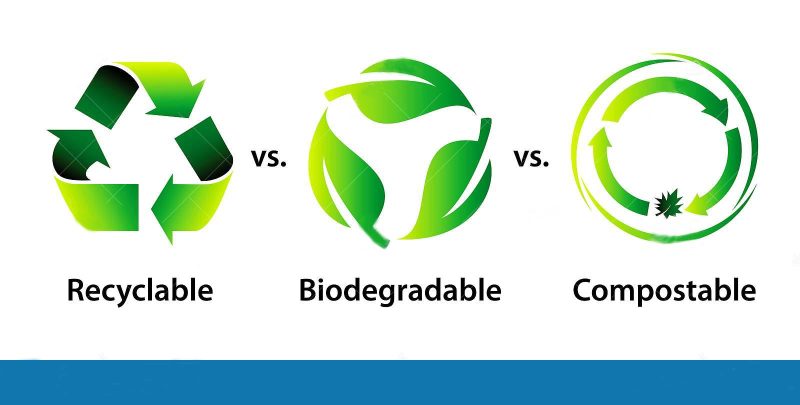The distinction between compostable and biodegradable
In the never-ending search for environmentally friendly products and solutions, two words come up often, Compostable and biodegradable. But what do they mean? Is one better than the other? What do you need to know? We’ll teach you the ins, outs, pros, and cons of both Compostable and Biodegradable products.
What is Biodegradable?
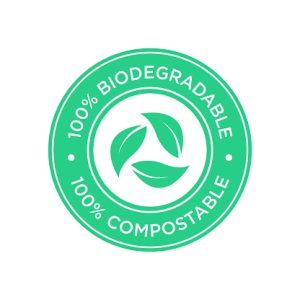
Simply defined, if something can be broken down by bacteria, fungi or some other biological process, it is “biodegradable. If you look at the word by itself, the meaning is there.” Biological” implies “life,” “degradable” implies decomposition, and “capable” of course means that it can happen. Biodegradation is basically just nature taking its course and breaking down materials into their component parts. Plastics break down into carbon dioxide, water, and a few other things. Pretty simple, right?
The truth is that lots of things are biodegradable, if given enough time. Plastics in particular are known to take decades or even centuries to break down naturally, but they will break down. So, technically speaking, they are biodegradable. Even diapers, notorious for lasting a long time in land fills, will break down eventually.
When a packaging company says that their product is biodegradable, all they really mean is that it will break down when placed in a land fill. This is a good thing! obviously we don’t want products that last forever sitting in our land fills. The key, however, is to take note of how long it takes for the product to biodegrade. Some products degrade in months, while others take years. When shopping for green products, the less time for biodegradation the better.
What is Compostable?
We’ve all heard of a compost heap, right? When you take organic materials and allow it to decompose which then creates fertilizer for your soil. Composting is the process of recycling organic waste so that it can eventually be reused.
In the packaging industry, compostable means something a little different. Usually, what packaging companies mean when they call their product “compostable” is that it can be turned into compost if it goes into an industrial composting facility. This is an important difference. Compostable products don’t always degrade naturally in landfills. They must be placed in the right conditions, and those conditions are usually found only in industrial composting facilities. Compostable products that are placed in landfills, especially “air locked” landfills without oxygen, will take much longer to decompose.
Compostable products are great for the environment, but it is important to make sure that your business has the proper waste management processes in place. Make sure that your compostable waste is going to a compost facility.
What’s the Difference?
The primary difference between compostable and biodegradable is that compostable products require a specific setting in order to break down, whereas biodegradable products break down naturally. Typically composting is a faster process, but only under the right conditions. Both of these kinds of products are better for the environment than plastic products that can take hundreds of years to disintegrate.

